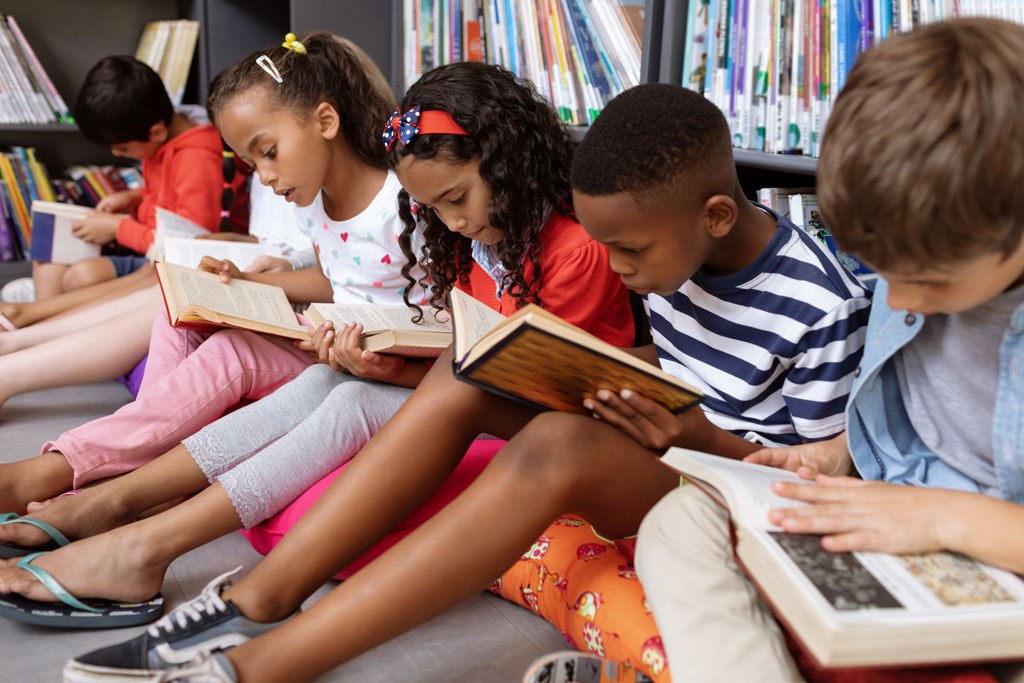
“Joyful books, for readers both young and old.”
Hello and Welcome to my Blog, Jewel Noir!
I am Dr. Kimberly A. Gordon Biddle, an Emeritus Professor from Sac State and an author of textbooks and children’s books (PB & MG). I started out with humble beginnings, being raised in poverty by a single parent mom in a rural village in Illinois. I was educated at the University of Redlands with a Double BA in Psychology and Music, where I graduated Cum Laude. Then I continued my education at Stanford University GSE, where I obtained a PhD in Child and Adolescent Development. After 30 years in the field, 28 years as a Professor, I am retired and focused on helping others with my writing. This bi‐monthly blog is one way that I am helping. I hope it is informative and helpful to those who read it.
Adverse Childhood Experiences (ACEs) and the Importance of Reading and Writing
Posted September 9th, 2020
We all know that learning to read and write are important for academic success and later success in life. Reading to children and teaching them to read are quite important for academic and practical life achievement. Additionally, learning to accurately spell words, write a well-constructed paragraph, and write a persuasive argument are also helpful skills for both learning in school and succeeding as an adult. However, what is the importance of reading and writing when a child experiences trauma or ACEs?
ACEs are traumatic and/or stressful experiences that can be acute or chronic. Some of these experiences include homelessness, poverty, extreme neglect, emotional abuse, physical abuse, witnessing domestic or community violence, experiencing divorcing parents, or death of a parent. ACEs impact children during the event and can also have long-term consequences on a child’s development into adulthood. ACEs can impact physical health, mental health, brain development, and academic achievement. Academically, mathematic skills, reading skills, and writing skills are impacted. Children who experience ACEs also have behavioral problems, attendance problems, attention problems, problems with aggression, negative self-image, and poor impulse control. Having a higher number of ACEs or having to endure ACEs, for a long period of time, means that children are more likely to have deep and long-lasting effects.
So, for those of us who love children; such as parents, other caregivers, other family members, teachers, librarians, authors, illustrators and publishers; why are reading and writing important for children who experience ACEs and what can we do to help? I think we can all agree that in general reading and writing are important skills. What makes them really important for children who experience ACEs? The author of the blog contends that establishing a routine of reading and writing for children who are experiencing or have experienced ACEs is indeed important. Not only are reading and writing important skills to develop, but they can assist the child with regulation, attention and/or concentration, brain development, appropriate release of anger and aggression, and experiencing a healthy escape from a negative situation. I contend that having regular periods of reading and writing will help bring some sense of stability, regularity, and normalcy to children’s lives as they experience ACEs. So, the children will not only learn academic skills, they will learn to thrive and cope. This is my opinion, of course. I have not done the research to prove these assumptions. Research may exist in these areas, but I base my opinion on my education concerning children, their development, their education, and their family environment. I also base my opinion on my ability to reason and my practical life, “lived’ experiences. In fact, I think reading and writing take on even more importance when children are experiencing or have experienced ACEs.
In conclusion, I think that we as creators of books for children, parents of children, educators of children, and librarians in schools and community settings, need to be aware of the critical role we play in children’s lives, all children’s lives from birth to age 25. We need to realize that we are helping children by giving them reading and writing skills and a place and time to express emotions and adaptively escape negative situations. Yes, there are other ways to achieve these goals, such as play therapy, emotional counseling, and teaching coping strategies or mindfulness. Reading to a child may not be all that they need to do well in school and in life, especially if they experience ACEs. But sometimes, children just need a routine, some love, and some attention that are positive and furthers their development. Sometimes, children just need a good book.
**Some of the information in this blog is from an article titled “The association between adverse childhood experience (ACE) and school success in elementary school children” published in School Psychology Quarterly in 2018. However, the bulk of the information and related assertions come from the author. For more research and statistical information, please refer to the article. For more information about the author, please see the website which houses this blog.
Current Blog
Posted January 16th, 2026
Archives
Posted June 1st, 2025
Posted October 12th, 2024
Posted February 11th, 2022
Posted January 17th, 2022
Posted November 17th, 2021
Posted September 2nd, 2021
Posted June 15th, 2021
Posted March 15th, 2021
Posted January 13th, 2021
Posted October 8th, 2020
Posted September 9th, 2020